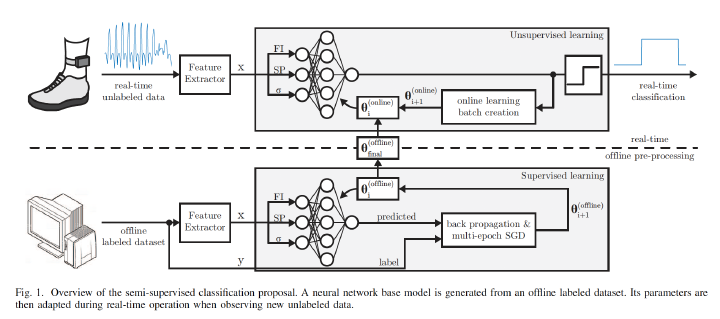Real-Time Patient Adaptivity for Freezing of Gait Classification Through Semi-Supervised Neural Networks

Abstract
Freezing of gait (FoG) is a sudden and episodic inability to generate effective stepping among Parkinson’s disease patients. It poses a risk for falls and deteriorates a patient’s quality of life. Aid is sought after by the implementation of wearable systems that detect FoG and provide biofeedback cues in real-time. Detection is predominantly attempted with patient independent classifiers which have difficulties to account for some patient’s inimitable walking styles. Such gait peculiarities can be addressed with patient-adaptive classifiers. However, the patient-specific adaptations proposed thus far are retrospective and require a patient’s labeled data. We propose to provide patient adaptivity in real-time through semi-supervised neural networks which exploit the stream of unlabeled data generated during usage. Using supervised learning, a patient-independent neural network is designed to serve as a base model. Upon a new patient’s utilization of the system, the base model’s parameters are adapted in real-time through unsupervised learning from the generated stream of unlabeled data. On average, patient adaptivity augmented sensitivity by 4.58% for the price of 0.59% in specificity. Moreover, it accounted for inimitable walking styles of patients that had been inadequately classified by the patient independent base model. For such patients, sensitivity increased up to 42.01%. The overall patient-adaptive classifier resulted in 95.90% and 93.05% in sensitivity and specificity, respectively.